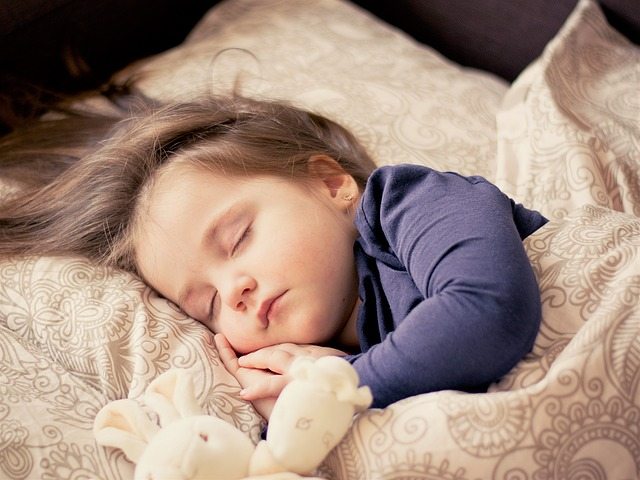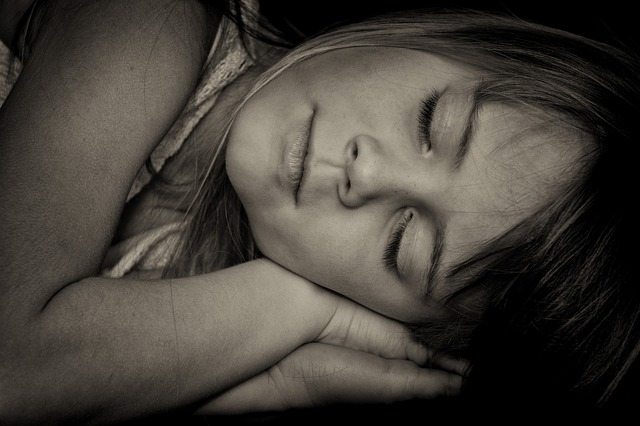Putting your kids to early with a set bedtime routine is one of the best things you can do for your child’s health.
It’s been a long known fact that both children and adults who don’t get enough sleep are at an increased risk of obesity, but a new study now suggests the time a child is put to bed also has links to greater obesity in life too.
The study has proven a regular bedtime routine and going to bed at a set time each night benefits children.
Sarah Anderson, the Lead author of the study and associate professor of epidemiology at Ohio State University’s College of Public Health confirmed, “This study adds to a body of research that demonstrates that young children benefit from having a regular bedtime and bedtime routine.”
The study was published in the Journal of Pediatrics and had researchers analyze data on 977 children that were part of the Eunice Kennedy Shriver National Institute of Child Health and Human Development’s Study of Early Child Care and Youth Development.
The data recorded the bedtimes of children from preschool age to adolescence. Once the children became teens (15), their age, height, weight and body mass index were measured.
Researchers compared the data and found 10% of children who went to bed at 8pm or earlier were obese as teenagers, but the percentage increased when their bed time was after 9pm A staggering 23% of the children who went to bed after 9pm were obese as teenagers.
The children that went to bed between 8 and 9pm when they were preschool age, 16% were obese as teenagers.
“Preschool-aged children with early weekday bedtimes were half as likely as children with late bedtimes to be obese as adolescents. This was true even after taking into account other factors that we know are related to risk for obesity,” Anderson said.
“Other research has shown benefits for children’s behavior, cognitive development and attention,” she added. “Regular bedtime routines, including an early bedtime, also are linked to fewer sleep problems such as nighttime awakenings or difficulty falling asleep.”
Anderson gives reasons why there is a link between bedtime and obesity later in life with our kids.
“First, children who have a regular early bedtime are more likely to get enough sleep. Not getting enough sleep can result in changes in the hormones controlling appetite and metabolism,” Anderson said.
“Also, staying up later in the evening provides more opportunity for snacking and viewing television commercials that promote snacking,” she added. “Recommending that preschool-aged children are in bed by 8 p.m. is a potentially modifiable household routine that may help to prevent obesity.”
Reut Gruber, researcher at McGill University in Canada and director of the Attention, Behavior and Sleep Lab at the Douglas Mental Health University Institute agrees that an earlier bedtime can help children’s brains which in turn benefits their bodies’.
“An early bedtime benefits a child’s physical health, as well as mood and mental health, because it allows time for restorative sleep, which is important for the repair and recovery of the brain and the body,” he said.
“Sleep deprivation impairs the physiological processes that allow for adaptive emotional regulation. Emotional regulation processes are dependent on a ‘dialogue’ or interactions between the parts of the brain called prefrontal cortex and the amygdala,” she said. “These neural areas that govern emotional regulation are sensitive to sleep deprivation. When people are sleep-deprived, the connectivity between the prefrontal cortex and amygdala is impaired, and this leads to an individual’s difficulty to regulate emotions.”
Additionally, “there is a vicious negative cycle, with sleep deprivation impairing emotional regulation and with impaired emotional regulation leading to increased stress and arousal, further interfering with sleep,” Gruber said.
Sleep studies on children have shown that sleep is imperative for children. The Journal of Pediatric Psychology published a study in 2013 involving 32 children between the ages of 8 and 12. The children were either instructed to go to sleep an hour earlier or later for one week. At the end of the week they were measured on their emotional functioning, memory attention and math fluency. Researchers found the children who went to bed one hour later did not perform as well as the children who went to bed an hour earlier.
Another separate study on children’s bed times concluded adolscents who went to bed before 10pm each night were less likely to suffer from depression and to have suicidal thoughts.
Many theories and studies have been developed to understand the necessity of sleep but none have gone so far as to explain what time is the best time for kids to go to sleep.
Dr. Sumit Bhargava, clinical associate professor of pediatrics at the Stanford University School of Medicine and sleep physician at Lucile Packard Children’s Hospital says an earlier bedtime may not necessarily affect a child’s physical health. It’s all about the amount and quality of sleep the child gets.
“An early bedtime, per se, will not necessarily affect a child’s physical health or mood and mental health in a positive way. The goal should be, choose an age-appropriate bedtime that allows the individual child to get the hours of sleep the child needs,” he said.
“Set an appropriate bedtime based upon the amount of sleep your child needs to be functional and effective during the day. Then, be consistent with it, even on weekends,” he added. “Sleep is just as important to human life as eating and breathing. We spend almost a third of our lives sleeping.”
As a guide, The American Academy of Sleep Medicine released these sleeping guidelines for children in June 2016.
•Babies 4 months to 12 months should get 12 to 16 hours
•Children 1 to 2 years old should get 11 to 14 hours
•Children 3 to 5 years old should get 10 to 13 hours
•Children 6 to 12 years old should get nine to 12 hours
•Teenagers 13 to 18 years old should get eight to 10 hours
Suggested Times Children should be asleep by
• 7pm for infants
• 7:30pm for toddlers
• 8pm for younger children
• 8:30pm pre-teens
• Between 9 and 10:30pm for teens
Harriet Hiscock, associate professor at the Murdoch Childrens Research Institute in Australia adds, “There is no hard and fast rule for this, as sleep quality is probably more important than sleep duration, at least in children. A regular bedtime and bedtime routine are probably more important.”
To get children to sleep, don’t negotiate bedtime. It’s not optional when kids go to bed. A set routine should be put in place – bath, brush their teeth, reading and bedtime is just one suggestion of how to go about getting children to bed.
With younger children, try to create a pleasant and calm bedtime routine. Older children will of course work more independently. They may need a rule for when the lights need to turn off for the night.
It’s important for all electronic devices to be turned off well ahead of bedtime. Parents need to be involved in the rules around bedtime to ensure their children do go to bed at the right time.











